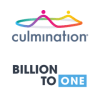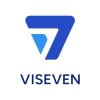CHICAGO — Tens of thousands attendees flooded the cavernous halls of Chicago's McCormick Place this weekend for the 54th Annual Meeting of the American Society of Clinical Oncology.
The industry is buzzing about new data from the mountain of abstracts presented and potential implications for treating cancer.
One study making headlines of more than 10,000 breast cancer patients found that chemotherapy, when added to hormone therapy, didn't improve disease-free survival for a significant number of them. Another investigation looked at kidney cancer, and concluded many patients don't need to get the organ removed if they're taking Pfizer's Sutent (sunitinib malate).
ASCO is also a showcase for the biotech and pharmaceutical companies that develop new cancer medicines. Yet — as is typical in the clinic — positive readouts were balanced with some noteworthy misfires. Below, BioPharma Dive highlights the biggest victories and toughest setbacks coming out of ASCO 2018.

Winners
Merck & Co.
Results from two Phase 3 studies look set to cement the position of Merck's Keytruda (pembrolizumab) as the top immunotherapy in the non-small cell lung cancer market.
Already, Keytruda's two approvals as a first-line treatment for NSCLC have buoyed the pharma, fueling quickening sales.
That position now looks stronger, after data presented at the conference showed Keytruda helped improve survival in a broader pool of patients than had previously been shown.
In a trial known as Keynote-407, Keytruda plus chemotherapy cut the risk of death by 36% compared to chemo alone in squamous cell NSCLC. And in Keynote-042, Keytruda monotherapy extended survival by a median of between four and eight months in patients whose tumors expressed more than 1% of a biomarker known as PD-L1.
Most of the benefit in the latter study was seen in patients with high PD-L1 levels, confirming what was already proven in an earlier study of the drug. Still, the results showed Keytruda's powerful effect for the patients who do respond to immunotherapy.
Transformative #ASCO18 for NSCLC, which is now a biologically treated disease. Algorithm: test for driver mutation; if present, give targeted therapy. If no mutation present, treat with IO alone (strong PDL1 expression) or IO + chemo (lower PDL1). https://t.co/trpW6LYdRS
— Hal Burstein, MD (@DrHBurstein) June 3, 2018
Rivals Roche and Bristol-Myers Squibb will still present a challenge to Merck in NSCLC, and the fast-moving field could shift yet again. For now, though, Keytruda appears to be in the pole position.
Loxo Oncology
Loxo and its mutation-focused approach to cancer treatment really started commanding attention from the industry at last year's ASCO conference. Data from a trio of clinical trials evaluating larotrectinib, a tropomyosin receptor kinase inhibitor and the biotech's lead candidate, showed a 76% objective response rate in 50 patients who collectively had more than a dozen different cancers.
Now, early data on another one of Loxo's assets is further bolstering the company's approach.
Among cancer patients who tested positive for a kind of genetic abnormality called rearranged during transfection (RET) fusions, the overall response rate (ORR) upon treatment with LOXO-292 was 77%. And among patients with RET-mutated medullary thyroid cancer (MTC), the ORR was 45%. Loxo also noted there were early signs of durability with its drug, and that most treatment-emergent adverse events were mild.
The data was all the more impressive given that most of the enrolled patients had been pre-treated. Many had also taken multikinase inhibitors, another anti-tumor agent.
Following the company's presentation of these results, shares rose more than 5% Friday before spiking another 12% Monday to reach a 52-week high of $208.95 apiece. Shares later pared back some of those gains, however.
Alexander Drilon, clinical director in the early drug development service at Memorial Sloan Kettering Cancer Center and the study's presenting author, called the data "striking," in a June 2 statement.
"The activity we reported is impressive and I am thrilled to see this promising efficacy with limited adverse events, especially in this heavily pre-treated patient population of RET fusion cancers, including those with brain metastases, and RET mutated MTC," he said.
Second wave of CAR-T therapies
One ASCO ago, there were no CAR-T cell therapies approved for commercial use. In the 12 months since, treatments from Novartis and Gilead Sciences have secured OKs from the Food and Drug Administration for leukemia and non-Hodgkin lymphoma.
This year, the cancer field got a better sense of what might follow those pioneering therapies. Bluebird bio continued to make progress with its experimental CAR-T for multiple myeloma, presenting results that showed the treatment helped stave off disease progression or death for a median of about one year.
Bluebird, which is partnered with Celgene, tested its CAR-T in extremely sick patients, most of whom had received seven or eight prior treatments including autologous stem cell transplants. The results suggested some hope for people with few other options.
More broadly, Bluebird's progress helps to validate CAR-T outside of leukemia and lymphoma, and shows the approach can work against other targets besides the CD19 antigen that Novartis and Gilead's therapies hit.
Also at the conference, Celgene presented results suggesting the CAR-T acquired in its buyout of Juno Therapeutics may trigger fewer severe side effects than those from rivals.
For CAR-T to have the impact many hope for, continued improvements in safety will be needed so the therapies can be used earlier, in less sick patients.
Important questions, such as durability of effect, remain for both CAR-Ts. Yet, it's another step forward for a still-early field.
Losers
Roche
In IMpower131, stage four squamous NSCLC patients treated with Roche's Tecentriq (atezolizumab) plus chemo had a positive effect on progression free survival, with a 29% lower risk of disease progression or death compared to patients receiving just chemo.
It's a fine effect, especially considering the squamous setting is generally harder to treat. But in the ultra-competitive area of NSCLC drug development, fine doesn't cut it anymore.
Companies often warn against comparing clinical trial results for different therapies, but Roche investors couldn't seem to overlook data that Merck unveiled just a day after the IMpower131 presentation. Keynote-407 found the combo of Keytruda and either paclitaxel or nab-paclitaxel cut the risk of death by 36% versus chemo alone — offering the first example where an anti-PD-1 and chemo pairing significantly extended overall survival in the first-line treatment of metastatic squamous NSCLC.
The Keytruda combo also scored in PFS with a 50% reduction in risk of disease progression or death versus chemo alone. What's more, it proved effective in OS regardless of PD-L1 expression.
Tecentriq plus chemo may show an OS benefit as the IMpower131 data matures. Leaving ASCO, though, Roche finds itself playing catch-up to Merck, which has filed the Keytruda combo with U.S. regulators for the first-line treatment of squamous NSCLC.
Separately, Roche faced another setback with the SANDPIPER trial, wherein its PI3K inhibitor taselisib combined with a standard hormone therapy didn't offer much in the way of PFS. There were toxicity concerns as well, and the Swiss pharma decided to end development of taselisib.
"The magnitude of benefit observed in SANDPIPER isn’t as strong as we had hoped for and, given the challenging difficult safety profile of this combination and the current clinical landscape, Roche will not be pursuing a regulatory filing for taselisib based on the data presented at ASCO," the pharma said in a statement.
Nektar Therapeutics
Nektar thought it had good news. Three months on from securing $1.85 billion upfront from Bristol-Myers for partial rights to its experimental immunotherapy, the biotech arrived at ASCO with a hotly anticipated update on how well that drug worked together with the pharma's PD-1 inhibitor Opdivo (nivolumab).
Data presented Saturday showed the combo led to seemingly promising response rates when given as initial treatment to a few dozen patients with melanoma, kidney or bladder cancer. Per the trial design, the rate of response in the first group of patients needed to clear a pre-specified level based on historical figures for each cancer.
Encouraged, the partners announced their plans to launch large Phase 3 studies in those tumor types.
Yet, data on a second cohort of patients treated showed fewer responding to treatment, raising questions of whether the early signs of efficacy would hold up over time.
Wall Street, having just been burned by disappointing results from a combo of immunotherapy drugs from Merck and Incyte, took the news badly, pushing shares in Nektar down sharply Monday. The sell-off erased $6 billion in Nektar's market capitalization — an example of how quickly investor sentiment can turn in the fast-moving cancer field.
My take on the Nektar data is that it just became the biggest battleground in biotech. Either you believe 1) the new patients from the phase two expansions will turn into responses with time or 2) phase one was a low n mirage. We’ll only know with time.
— Brad Loncar (@bradloncar) June 3, 2018
Biotech partners on combo studies
Drug combos, while already game-changing in some areas of cancer treatment, are far from a perfected science. And if there's one thing this year's ASCO demonstrated, it's that when the science doesn't pan out, biotechs suffer the most.
Three of the more pronounced examples are Jounce Therapeutics, Nektar and Incyte.
Jounce shares are trading at less than half the value they had in mid-May, right before the Massachusetts biotech published an abstract detailing some of the early data from its ICONIC trial. The trial tested Jounce's JTX-2011, which activates a T cell surface protein, with Bristol-Myers' Opdivo for a variety of solid tumors. The combo's efficacy left much to be desired, with relatively few patients achieving partial responses. While Jounce is independently sponsoring ICONIC, the data may weigh on its partnership with Celgene.
Nektar was a slightly different story. Data from the aforementioned study pairing the company's experimental immunotherapy NKTR-214 with Opdivo weren't so much bad as confusing. The study's design was quite complex, including dose-escalation and dose-expansion portions set up to evaluate the combo's effect in five different types of cancer.
In three of those types — melanoma, kidney and bladder — response rates ranged from 46% to 60% for patients whose efficacy data was evaluable. Though positive, the effects were more muted compared to previous readouts. The presentation still spooked Nektar investors, sending the biotech's stock skidding. Conversely, shares in Nektar's big pharma partner Bristol-Myers were relatively unshaken.
Incyte is arguably the current poster-company for combo flops, however. Its stock dove 20% in early April on news that the combo of epacadostat and Keytruda failed to outperform Keytruda monotherapy at improving PFS in patients with unresectable or metastatic melanoma.
Shares stayed relatively stable during a more comprehensive presentation of the data at ASCO, but the underlying conclusions remained disappointing. In fact, Charles Drake of Columbia University's Herbert Irving Comprehensive Cancer Center noted the data were "remarkably negative," pointing to nearly identical treatment effects seen between the combo and monotherapy groups.














